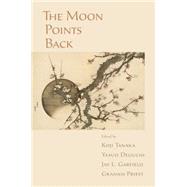The Moon Points Back comprises essays by both established scholars in Buddhist and Western philosophy and young scholars contributing to cross-cultural philosophy. It continues the program of Pointing at the Moon (Oxford University Press, 2009), integrating the approaches and insights of contemporary logic and analytic philosophy along with those of Buddhist Studies in order to engage with Buddhist ideas in a contemporary voice.
The essays in the volume focus on the Buddhist notion of emptiness (sunyata), exploring its relationship to core philosophical issues concerning the self, the nature of reality, logic, and epistemology. The volume closes with reflections on methodological issues raised by bringing together traditional Buddhist philosophy and contemporary analytic philosophy.
The Moon Points Back demonstrates convincingly that integration of Buddhist philosophy with contemporary analytic philosophy and logic allows for novel understandings of and insights into Buddhist philosophical thought. It also shows how Buddhist philosophers can contribute to debates in contemporary Western philosophy and how contemporary philosophers and logicians can engage with Buddhist material.








